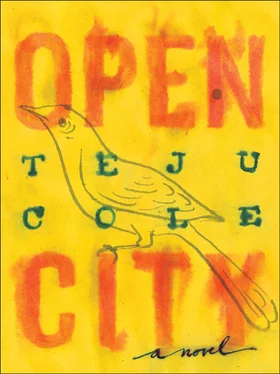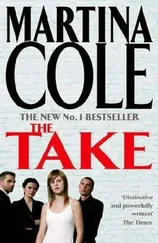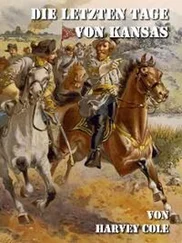Farouq opened the register. I wished the customers would stop interrupting us. For a moment, too, I thought I should correct his slightly inaccurate quotation of Meir. But I was unsure of my ground, and he continued as though there had been no interruption at all. A question was asked, he said, during a discussion of political philosophy. We were supposed to choose between Malcolm X and Martin Luther King, and I was the only person who chose Malcolm X. Everyone in class was in disagreement with me, and they said, Oh, you chose him because he is a Muslim and you are a Muslim. Yes, fine, I am a Muslim, but that is not why. I chose him because I agree with him, philosophically, and I disagree with Martin Luther King. Malcolm X recognized that difference contains its own value, and that the struggle must be to advance that value. Martin Luther King is admired by everyone, he wants everyone to join together, but this idea that you should let them hit you on the other side of your face, this makes no sense to me.
It’s a Christian idea, I said. He was a churchman, you see, his principles came from the Christian concept. That is it exactly, Farouq said. This is not an idea I can accept. There’s always the expectation that the victimized Other is the one that covers the distance, that has the noble ideas; I disagree with this expectation. It’s an expectation that works sometimes, I said, but only if your enemy is not a psychopath. You need an enemy with a capacity for shame. I wonder sometimes how far Gandhi would have gotten if the British had been more brutal. If they had been willing to kill masses of protesters. Dignified refusal can only take you so far. Ask the Congolese.
Farouq laughed. I looked at my watch, though I really had nowhere to go. The victimized Other: how strange, I thought, that he used an expression like that in a casual conversation. And yet, when he said it, it had a far deeper resonance than it would have in any academic situation. It occurred to me, at the same time, that our conversation had happened without the usual small talk. He was still just a man in a shop. He was a student, too, or had been one, but of what? Here he was, as anonymous as Marx in London. To Mayken and to countless others like her in this city, he would be just another Arab, subject to a quick suspicious glance on the tram. And of me, he knew nothing either, only that I had made phone calls to the United States and to Nigeria, and that I had been into his shop three times in five days. The biographical details had been irrelevant to our encounter. I extended my hand and said, I hope we can continue this conversation soon, peace. I hope so too, he said, peace.
Thinking back to Mayken’s assertions, I had been wrong, I decided. What Farouq got on the trams wasn’t a quick suspicious glance. It was a simmering, barely contained fear. The classic anti-immigrant view, which saw them as enemies competing for scarce resources, was converging with a renewed fear of Islam. When Jan van Eyck depicted himself in a large red turban in the 1430s, he had testified to the multiculturalism of fifteenth-century Ghent, that the stranger was nothing unusual. Turks, Arabs, Russians: all had been part of the visual vocabulary of the time. But the stranger had remained strange, and had become a foil for new discontents. It occurred to me, too, that I was in a situation not so radically different from Farouq’s. My presentation — the dark, unsmiling, solitary stranger — made me a target for the inchoate rage of the defenders of Vlaanderen. I could, in the wrong place, be taken for a rapist or “Viking.” But the bearers of the rage could never know how cheap it was. They were insensitive to how common, and how futile, was their violence in the name of a monolithic identity. This ignorance was a trait angry young men, as well as their old, politically powerful rhetorical champions, shared the world over. And so, after that conversation, as a precaution, I cut down on the length of my late-night walks in Etterbeek. I resolved, also, to no longer visit all-white bars or family restaurants in the quieter neighborhoods.
I hoped, on my next visit to the shop, to talk to Farouq about the Vlaams Belang, and what life had been like in the wake of all the acts of violence. But on the day I next went there, he was in conversation with someone else, an older Moroccan man, who seemed to be in his mid-forties. I nodded to both of them in greeting, and went into one of the phone booths, and placed a call to New York. When I came out they were still talking. The older man rang up my charges, and Farouq said, My friend, my friend, how are you doing? But it suddenly occurred to me that, even if he had been alone, I wouldn’t have wanted to talk. He, too, was in the grip of rage and rhetoric. I saw that, attractive though his side of the political spectrum was. A cancerous violence had eaten into every political idea, had taken over the ideas themselves, and for so many, all that mattered was the willingness to do something. Action led to action, free of any moorings, and the way to be someone, the way to catch the attention of the young and recruit them to one’s cause, was to be enraged. It seemed as if the only way this lure of violence could be avoided was by having no causes, by being magnificently isolated from all loyalties. But was that not an ethical lapse graver than rage itself?
One euro exactly, the older man said, in English. I paid, and left the shop.
The days went by slowly, and my sense of being entirely alone in the city intensified. Most days I stayed indoors, reading, but I read without pleasure. On the occasions when I went out, I wandered aimlessly in the parks and in the museum district. The stones paving the streets were sodden, liquid underfoot, and the sky, dirty for days, was redolent with moisture.
I went to a café in Grand Sablon one afternoon, sometime after the lunch hour. I was one of only two customers, the city being rather quiet in the week between Christmas and New Year’s Day. The other person in the café was a middle-aged tourist who, I noticed when I came in, was scrutinizing a map. In the small interior, which was lit by the diffuse light from outside, she looked pallid, and her gray hair caught the light with a dull shine. The café was old, or had been done up to look old, with darkly polished wood lining its walls and several oil paintings in tarnished gold-leaf frames. The paintings were marine scenes, choppy seas on which quartermasters and merchant ships listed perilously. The seas and skies were without a doubt much darker than they were when they had been painted, and the once-white sails had yellowed with age.
The tall girl who brought my coffee had a Parisian rather than Bruxelloise affect. She set the coffee down and, to my surprise, she herself sat for a moment at my table, and asked where I was from. She was about twenty-two or twenty-five, I guessed, with heavy-lidded eyes and a winning smile. I was flattered by the approach, and by her obvious interest in me; she was undoubtedly used to having a strong and immediate effect on men. But, flattered as I was, I was uninterested, and my responses to her were polite and even a little curt, and when she stood up again, with her tray, it was less with displeasure than with puzzlement.
Some fifteen minutes later, I paid the man at the counter. At the same time, the pallid tourist had come up to settle her bill. She spoke halting English with an Eastern European intonation. When we both stepped outside, into the by now heavy rain, and stood under the café’s awning, I saw that she was more blond than gray, with heavy circles around her eyes, and a kind smile. I had an umbrella, and she didn’t. There was a quiet friendliness in her manner; there was, perhaps, expectation. I turned to her and asked if she was Polish. No, she said. Czech.
Читать дальше












